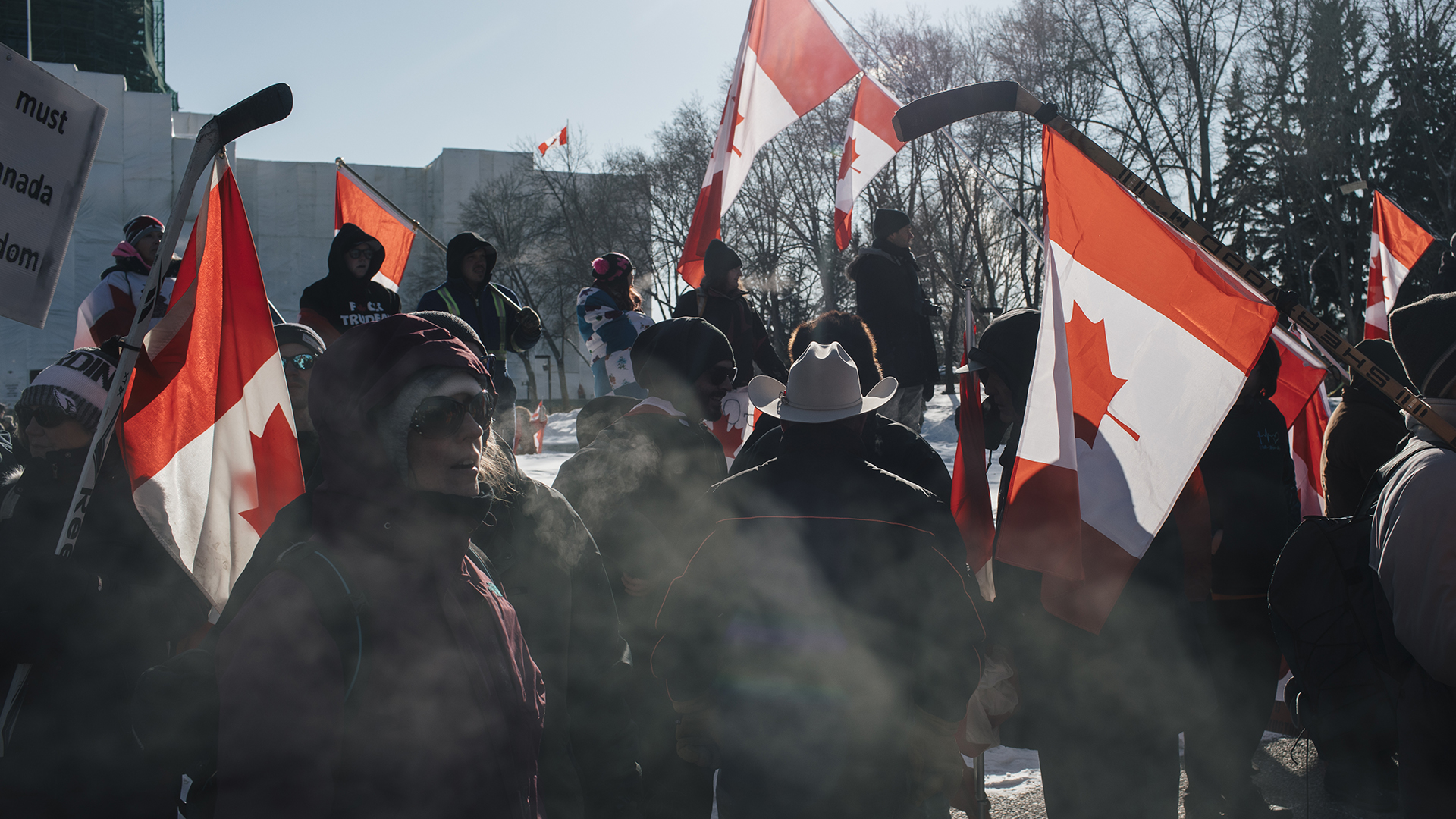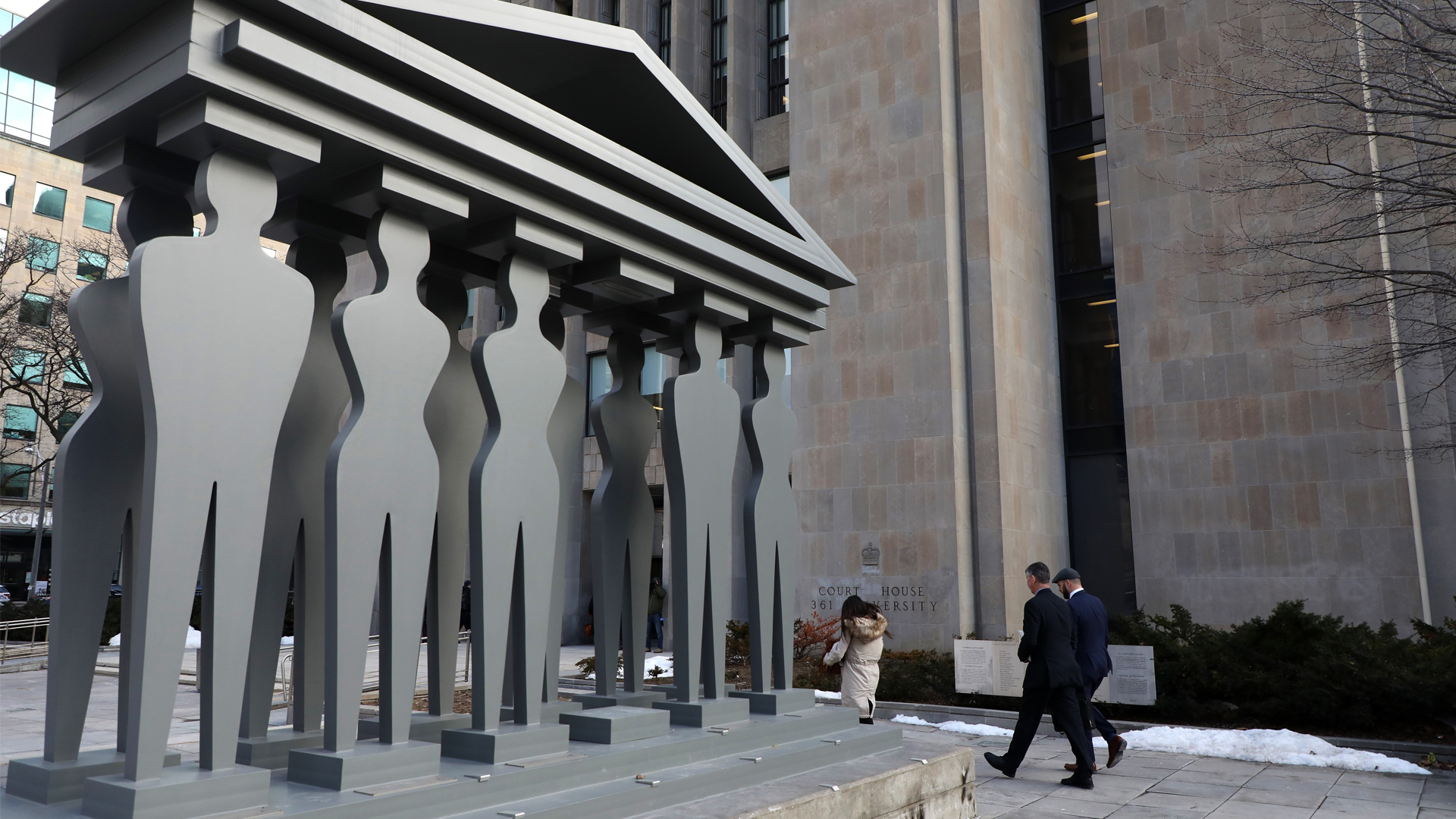
Vancouver is experiencing a measles outbreak, one of a growing number of places in Canada to have to deal with the serious disease. Seventeen cases have been identified by Vancouver Coastal Health since early March.
Measles can be very dangerous, especially for children. It can cause pneumonia, hearing loss, inflammation of the brain and, in extreme cases, death. It is also one of the most contagious viruses on the planet.
Measles was eradicated in Canada in 1998 thanks to widespread use of a vaccine developed in the late 1960s. This raises two key questions:
Why are we experiencing outbreaks? What can be done to stop them?
Recent outbreaks have occurred because in many communities across Canada, not nearly enough people have been immunized, and are being exposed to the virus from people who have contracted it abroad.
Most experts say between 90 and 97 percent of people need to be vaccinated to prevent the spread of the disease. But many places across Canada are at nowhere near that level.
Measles vaccine coverage for school-age children ranges from 92 percent in New Brunswick to only 65 percent in Nunavut, according to a 2017 report by the Public Health Agency of Canada. Quebec and NB are the only provinces above 90 percent. Coverage for Canada as a whole is 86 percent. (See Table 8 in the report.)
At the community level, the numbers are low, too. Half of the Lower Mainland elementary schools in British Columbia have measles vaccination rates of less than 90 percent, for example, according to the Vancouver Coastal and Fraser health authorities, The Vancouver Sun says.
Indeed, Canada ranks near the bottom with its childhood immunization rates: 28th out of 29 developed countries, according to a 2014 UNICEF report. It lags far behind other affluent countries, including the United States, Australia and the United Kingdom.
This has serious consequences for public health. Measles outbreaks are much more likely to happen in places where vaccination coverage is low. South of the border, there is an outbreak in Washington State, where over 60 cases have been identified. There have been recent outbreaks in Oregon, Arizona, New York and Texas as well. In a peer-reviewed paper, a team of researchers from the Baylor College of Medicine in Houston, Texas, identified each of these states last year as hotspots ripe for outbreaks because of the number of parents who refuse to vaccinate their children.
Measles outbreaks are hardly a North American phenomenon, and recent outbreaks around the world show just how deadly the disease can be. There are massive outbreaks happening in the Philippines (4,300 infected so far), Ukraine (more than 15,000 infected) and Madagascar (more than half a million infected, with nearly 1,000 reported child deaths).
Vaccinating people is the best way to stop the outbreaks, but a small, vocal minority of parents is hesitant to do so. Two percent of parents in Canada refuse all recommended vaccines, Health Canada said in a report last year, and an additional 10 percent refuse or delay some vaccines, for a total of 12 percent who are vaccine hesitant. The concentration of vaccine-hesitant parent is highest in British Columbia, according to the report.
Mandating childhood immunizations could solve this problem. It’s an idea at least one concerned mother is pushing for with an online petition to make vaccinations mandatory in BC in light of Vancouver’s outbreak. At the moment of this writing, the petition has been signed by over 44,000 supporters.
Mandatory vaccinations have considerable support among the public. Seventy percent of Canadians believe they should be mandatory for children to be able to attend school, according to a 2019 Angus Reid Institute poll, and that support crosses political lines. Two-thirds or more of supporters of each of the major federal parties support that view: 66 percent among supporters of the Conservative Party, 77 percent among the supporters of the NDP, and 80 percent among the supporters of the Liberal party. That view is also stable; an Angus Reid poll from 2015 found very similar numbers.
Yet, no province has mandated vaccination. Only three provinces have legislated vaccination policies: Ontario, Manitoba and New Brunswick. In each case, the law includes a clause that allows parents to exempt their children from mandated vaccinations on the grounds of religious or personal beliefs.
The United States can offer insight on the effectiveness of laws that mandate vaccinations. Four states do not allow religious or personal-belief exemptions: Vermont, California, Mississippi and West Virginia. The California law was passed after a measles outbreak at Disneyland in 2015, and measles vaccination coverage has rebounded to safe levels since its passage. Washington state is now considering a similar move. Not surprisingly, states with no personal-belief exemptions have higher levels of vaccine coverage than states that allow exemptions, studies have found.
The World Health Organization has identified vaccine hesitancy as one of the top 10 threats to global health this year. Canada would be wise to at least consider legislation, which has worked elsewhere, in an effort to boost vaccination coverage.
This call to action, however, comes with a warning.
With legislative action, there is always a risk that the issue will become politicized. It happened with climate change in the United States, where Republican politicians positioned themselves in opposition to Democrats, who supported the scientific consensus on global warming. The resulting polarization of public opinion has prevented effective action on climate change.
It is therefore imperative to make sure vaccine policy in Canada does not turn into a salient political issue on which political parties disagree. The bulk of responsibility here is with our politicians and the press. Politicians should resist any temptation to turn vaccines into an axis of political competition. The press, too, should think twice before handing the megaphone to anti-vaccine groups in an effort to provide voices from “all sides” of the issue.
If polarizing political actors were to use the issue to rile up their base, the societal consensus on vaccine safety would likely be jeopardized. The risk is that Canada could fall even further behind other countries in vaccine coverage, which could bring more frequent outbreaks like the one in Vancouver.
Photo: Shutterstock: Tatevosian Yana
Do you have something to say about the article you just read? Be part of the Policy Options discussion, and send in your own submission. Here is a link on how to do it. | Souhaitez-vous réagir à cet article ? Joignez-vous aux débats d’Options politiques et soumettez-nous votre texte en suivant ces directives.







